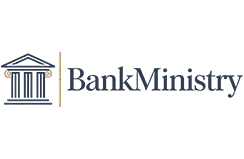Efficient financial management is the backbone of a successful business. One of the most important tools that help streamline a company’s financial operations is a dedicated business banking system. Whether you’re a startup founder, a small business owner, or managing a growing enterprise, business banking plays a critical role in organizing finances, enhancing efficiency, and supporting long-term growth.
Better Cash Flow Management
Cash flow is one of the most vital aspects of running a business. Business banking accounts offer features like cash flow tracking tools, transaction alerts, and detailed account statements. These tools help business owners monitor incoming and outgoing funds in real time.
When your finances are managed through a business account, it becomes easier to track revenue, expenses, and net income. This clarity allows for better planning and decision-making. You can forecast shortages, identify patterns in spending, and ensure there’s enough liquidity to cover operational costs.
Simplified Accounting and Bookkeeping
A separate business bank account significantly simplifies your accounting process. All transactions related to your company are recorded in one place, making it easier to categorize income and expenses. Most business bank accounts are compatible with accounting software like QuickBooks, Xero, or FreshBooks, which means you can automatically sync your bank data for real-time bookkeeping.
This integration reduces manual data entry and minimizes errors. It also helps accountants and bookkeepers access up-to-date and organized records, streamlining tasks such as reconciling accounts, generating reports, and preparing taxes.
Easier Tax Filing and Compliance
When personal and business finances are mixed, tax season becomes a logistical nightmare. Separating your business banking allows you to clearly distinguish between deductible business expenses and personal spending. This not only makes tax filing easier but also keeps you compliant with government regulations.
Having a clean, categorized record of transactions helps you maximize your deductions while reducing the risk of audits. If the IRS or tax authority ever requests documentation, a well-maintained business account can offer transparent and organized financial data.
Professional Image and Business Credibility
Using a business banking account adds a level of professionalism to your company. Issuing checks or receiving payments under your business name boosts your credibility with customers, vendors, and partners. It shows that you are running a legitimate operation and treating your business seriously.
This is especially important when dealing with corporate clients, investors, or applying for financing. A professional financial presentation builds trust and enhances your company’s reputation in the marketplace.
Streamlined Payroll and Vendor Payments
Business banking accounts often include payroll management tools and allow for easy scheduling of payments. Whether you have full-time employees or freelancers, being able to pay salaries or fees directly from a business account adds efficiency and clarity.
You can also automate payments to vendors, utility companies, and other service providers. This prevents missed payments, helps maintain good supplier relationships, and keeps your operations running smoothly without financial hiccups.
Access to Business Financing
Banks are more likely to offer loans, credit lines, and other financing products to businesses with a well-maintained banking history. A dedicated business account helps establish your creditworthiness and financial stability. Lenders often require a record of business income and expenses, which is easily available through your bank account statements.
Additionally, many business banking institutions offer tailored financial products and advisory services to help you grow. Whether it’s equipment financing, inventory loans, or working capital, having a business relationship with your bank gives you a better chance of getting favorable terms.
Fraud Protection and Enhanced Security
Business accounts come with added layers of security and fraud protection features. Many banks offer multi-user access with customizable permissions, two-factor authentication, and real-time fraud alerts. These features help protect your business from unauthorized transactions and cyber threats.
If your business conducts many digital transactions or handles customer data, security becomes a top priority. Business banking ensures you have access to the tools and support needed to protect sensitive financial information.
Time-Saving Digital Tools
Modern business banking is equipped with digital tools that automate many of the day-to-day tasks involved in financial management. From mobile apps and online bill pay to e-statements and budgeting tools, these features save time and reduce administrative workload.
Instead of managing payments manually or visiting the bank regularly, you can handle most tasks from your smartphone or desktop. This convenience frees up time to focus on strategic decisions and business growth.
Better Financial Planning and Insights
Many business banks provide dashboards and analytics that give you a clearer picture of your financial performance. You can set up custom reports, analyze spending patterns, and make informed decisions based on real-time data.
These insights are invaluable for long-term planning. Whether you’re considering expansion, budgeting for a slow season, or investing in new resources, the data from your business bank account helps you create realistic goals and track progress.
Separation of Personal and Business Finances
Keeping your personal and business finances separate is more than just good practice—it’s often a legal necessity. For businesses registered as LLCs or corporations, separate accounts help protect personal assets by preserving the legal distinction between the business and its owner.
Even for sole proprietors, this separation improves transparency and organization. It also prevents the confusion that comes with tracking expenses for two different purposes in the same account.
Conclusion
Business banking is more than just a place to store your company’s money—it’s a critical tool that supports efficient, organized, and secure financial operations. From managing cash flow and simplifying accounting to building credit and preparing for taxes, a dedicated business bank account plays a central role in the success of your business.
By leveraging the features and services offered by business banking, you not only gain better control over your finances but also lay a strong foundation for future growth. Whether you’re just getting started or looking to optimize your current systems, investing time in choosing the right business bank and using its services effectively will streamline your financial operations and drive your business forward.




